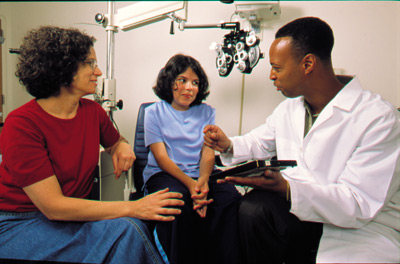
ADOLESCENCE: 11 - 14 Year Visits
Getting Ready for this Visit
 Help your teen be a partner in her health. Give your teen a "heads up" about physical and emotional changes that may occur. Ask her to write down questions about health and development, like signs of puberty, that she may want to discuss with the health care provider. At this age, the visit often includes some time for you and your teen together and some time with just your teen.
Help your teen be a partner in her health. Give your teen a "heads up" about physical and emotional changes that may occur. Ask her to write down questions about health and development, like signs of puberty, that she may want to discuss with the health care provider. At this age, the visit often includes some time for you and your teen together and some time with just your teen.
Children with special needs: Bring copies of his Individualized Educational Program (IEP) and health or transition plans. Discuss recent visits with specialists, procedures, or medication changes. Review support services you use or may need.
At this age, your child may:
- Show self-confidence
- Engage in activities that promote health and wellness
- Develop caring relationships with family, friends, and other adults
- Take part in community life
- Cope with stress in constructive ways
- Take increasing responsibility
- Make her own decisions
What's Important for this Visit
YOUR questions and concerns are the #1 priority! Your health care provider may also discuss:
-
Physical Growth/Development: Your teen's physical, mental, and oral health; body image; healthy eating and physical activity
-
Social/Academic Skills: Family, friends, community relationships; school
-
Emotional Well-Being: Your teen's moods; concerns about mental health; how he copes with stress; how he feels about his changing body and sexuality
-
Risky Behaviors: Smoking, drug or alcohol use, and sexual activity; any concerns about other risky behaviors, including drinking
-
Safety: Use of helmets, mouth guards, seat belts; violence and bullying
The 11 - 14 Year Visits: What To Expect
Your health care provider will do a physical exam, covering your teen with a drape for privacy, and check height, weight, Body Mass Index, and blood pressure. May examine genitals, and breast development. Carry out screening tests: vision, others as indicated:
- Immunizations: See chart for any needed at this age.
